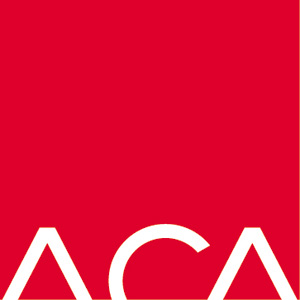Flexibility - New Award Clauses
Proposed new clauses in Modern Awards aim to further support flexible work. The ACA outlines what this might mean, how employers can prepare for these changes, and where to find good material to support flexible workplaces.
A recent decision from the Fair Work Commission about Family Friendly Working Arrangements proposes new clauses supporting flexible work be inserted into Modern Awards, including the Architects Award and other awards relevant to architectural practices.
We do not yet know the final wording of the new clause, or when it will come into effect. In the interim, the ACA encourages members to understand the implications of the proposed changes, and their practice’s responsibilities in terms of flexible work – along with the benefits and opportunities that flexible workplaces offer to businesses.
The right to request flexible work is one of the 10 minimum employment entitlements of the National Employment Standards (NES). With this decision, the Commission is proposing to supplement the NES provisions in three key areas:
- The group of employees eligible to request a change in working arrangements relating to parental or caring responsibilities, will be expanded to include ongoing and casual employees with at least six months’ service but less than 12 months’ service.
- Before refusing an employee’s request, the employer will be required to seek to confer with the employee and genuinely try to reach agreement on a change in working arrangements that will reasonably accommodate the employee’s circumstances.
- If the employer refuses the request, the employer’s written response to the request will be required to include a more comprehensive explanation of the reasons for the refusal. The written response will also be required to include the details of any change in working arrangements that was agreed when the employer and employee conferred, or, if no change was agreed, the details of any changes in working arrangements that the employer can offer to the employee.
Each of these will impact the employer’s responsibilities and obligations. The ACA recommends that members familiarise themselves with the material already available on flexible work arrangements, understand how to respond to a request, including consulting with the employee in a meaningful way, and what constitutes ‘reasonable business grounds’ under which the refusal of a request is considered valid.
Useful resources
A flexible workplace can provide real benefits to the practice, as well as employees, and there is a great deal of excellent material available for employers to help understand the opportunities and challenges. The ACA website includes a range of material on flexible work, and we provide links to material elsewhere below.
Fair Work Ombudsman
The Fairwork Ombusman has a good range of resources on flexible work, including an overview of flexibility in the workplace, a description of flexible working arrangements (including examples and an outline of reasonable business grounds for refusal), and best practice guides on work and family and the right to request flexible working arrangements.
Workplace Gender Equality Agency
The WGEA has an excellent range of material on strategic approaches to flexibility, including briefing notes on workplace flexibility and managing flexibility requests and step-by-step instructions for developing and implementing a workplace flexibility strategy.
Parlour Guides
The Parlour Guides to Equitable Practice are directly addressed to architectural practices and employees. These include guides to Flexibility, Part-time Work, Career Breaks, and challenging Long Hours cultures.
Parlour website
The Parlour website includes a number of useful articles on effectively managing flexible workplaces in architecture. These include:
“Flexibility: we are doing it why aren’t you” a report by the Queensland Gender Equity Committee on an event discussing how different practice manage flexible work.
“Flexibility at work” by Jenny Edwards, Director of Light House Architecture and Science on how her practice operates flexibly and the benefits that flow from this.
“Enabling flexible work” by Hannah-Jean Caden on how AMC Architecture manages flexible work, and the challenges and rewards of enabling flexible work.
“A flexible good news story” by Emma Healy, on the strategies she uses to have maximum impact in the workplace while working flexibly.
‘Managing your mental health’ by Rob Henry, on the benefits of flexibility in the workplace in terms of managing mental heath, and both employee and employer.
“Part-time architects – top tips for employers” by Misty Waters
The ACA will continue to publish material to assist members to run effective and profitable practices that are also fair and equitable and support employees in a variety of circumstances.
